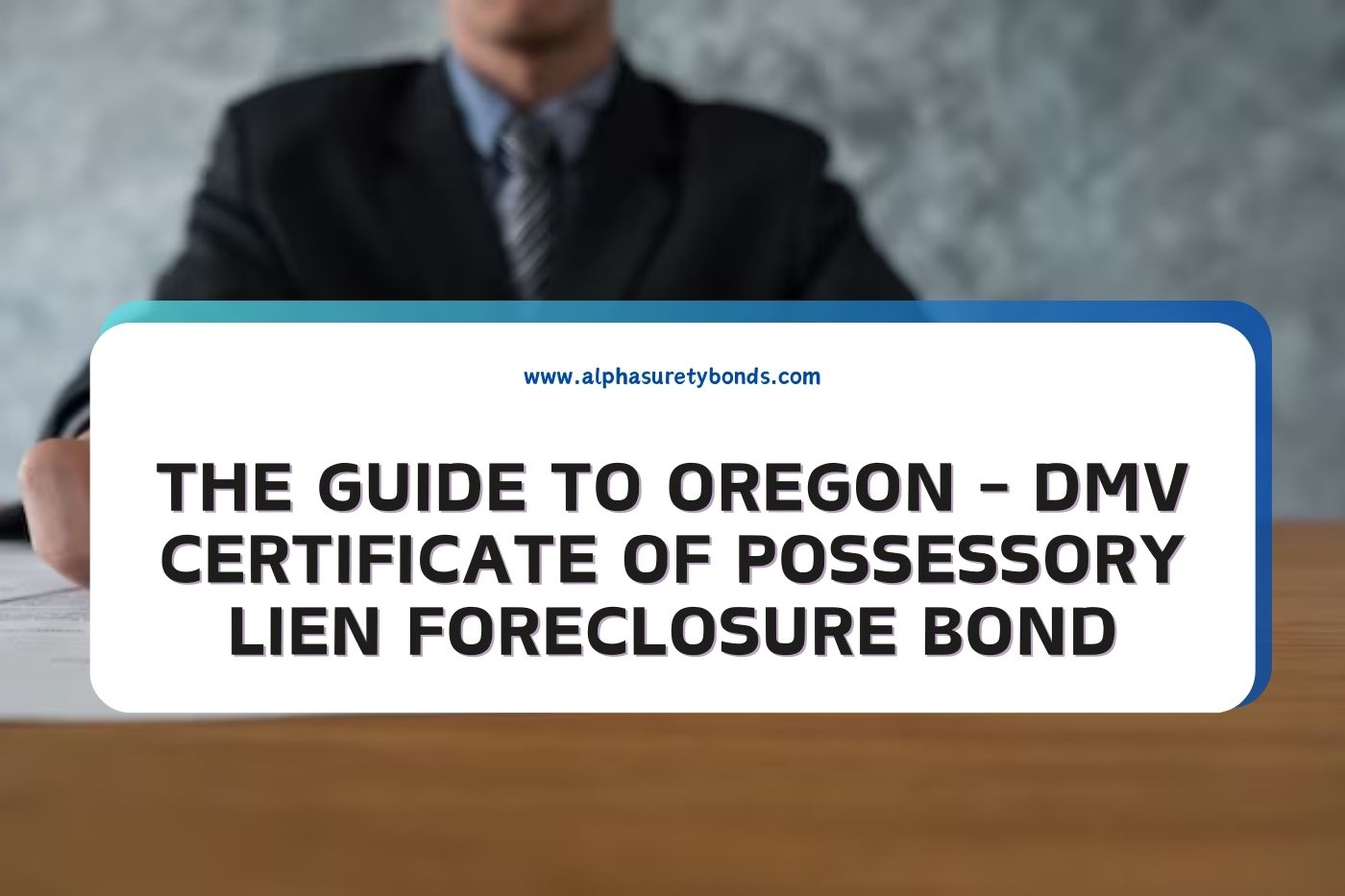Get An Instant Quote on Oregon – Landscape Contractor Bond
Definition of Oregon Landscape Contractor Bond
Explanation of a Landscape Contractor Bond
A landscape contractor bond is a form of insurance that provides assurance to the public and to any potential clients that a landscaping contractor will perform their duties according to state regulations and industry standards. This financial guarantee safeguards clients from potential loss or damages caused by the misconduct or negligence of the landscape contractor.
Specifics about the $20,000 bond in Oregon
In Oregon, it’s mandatory for all licensed landscape contracting businesses to hold an active surety bond amounting to $20,000—known as an Oregon Landscape Contractor Bond ($20,000). This specific bonding requirement acts as evidence that these contractors can meet obligations under contract agreements.
Purpose of the Oregon Landscape Contractor Bond
Protection for consumers
The primary purpose is consumer protection—it ensures customers get quality service without suffering losses due to shoddy workmanship or dishonest practices by providing monetary compensation when valid claims are made against it.
Compliance with state regulations
Holding this bond means demonstrating compliance with regulatory standards established by relevant authorities in Oregon including laws related to governing professional conduct within this industry.
Assurance Of Contractors’ Professional Conduct
This bond offers assurance of professional conduct – It essentially guarantees contractors will abide by legal requirements while delivering their services professionally and ethically.
Requirements To Obtain The Bond
Licensing Prerequisites For Landscape Contractors In OREGON
To obtain an OLCB (Oregon Landscaping Contractors Board) license which necessitates having an active surety bond – applicants must pass required exams displaying proficiency across various aspects like business management among others before applying towards licensure.
Process Of Applying For The Surety Bonds
It involves steps such as filling out application forms provided through approved agencies and submitting requested information/documents.
Necessary Documentation And Fees
Alongside the application, contractors must submit documents including a filled-out bond form, and pay relevant fees as per agencies’ requirements.
Cost Of The Oregon Landscape Contractor Bond
Factors Influencing The Bond Cost
Factors like credit history, financial strength, and past claim history influence the cost or premium of this bond.
Explanation Of Premium Rates
Premium rates for landscape contractor bonds typically range from 1% to 15% of the total bond amount—based on evaluating the above-mentioned influencing factors.
Potential Discounts Or Ways To Reduce The Bond Cost
Contractors can reduce costs by improving their credit scores or availing of discounts offered occasionally by some surety companies.
Consequences Of Bond Violations
Legal repercussions for contractors
Violating terms stipulated in bonds can lead to legal action which may result in fines or license suspension among other penalties.
Financial implications for contractors
Apart from potential legal costs involved – financial ramifications could be significant if claims made against them are found valid, leading towards compensation payouts from their pocket after exhausting the bonded amount.
Impact On Contractors’ Professional Reputation
Bond violations also adversely impact a contractor’s reputation, causing loss of clients and opportunities due to tarnished credibility.
Claim Process Against Bonds
Steps For Consumers to File Claims
Consumers dissatisfied with services provided who believe they’ve suffered losses due to compliant misconduct can file claims against these bonds following prescribed procedures set forth by the respective bonding companies.
Investigation And Resolution Process
Once filed – each claim is thoroughly investigated validating its authenticity before deciding upon a resolution involving either denial or settlement payouts depending on results yielded during investigations undertaken.
Possible Outcomes Of Claims
If proven valid – claimants receive compensation up to the maximum bound amount while any exceeding liabilities need to be borne directly by the contractors involved.
Renewal And Cancellation Of The Bonds
Process and timeline for bond renewal
Typically, bonds must be renewed annually although timelines can vary as per individual surety company’s guidelines.
Circumstances Leading To Bond Cancellation
Violation of the stipulated terms or non-payment of premiums could lead to cancellation of the bond by the issuing authority.
Effects Of Bond Cancellation On Contractor’s License
Cancellation will likely result in suspension or revocation of a contractor’s license since maintaining an active surety bond is an integral part of holding valid licenses.
Tips For Maintaining Compliance With The Bonds
Best Practices For Landscape Contractors
Contractors should ensure adherence to all regulatory requirements, provide quality services consistently, maintain timely premium payments and actively engage in improving their professional knowledge base for ensuring compliance with bonds.
Resources For Staying Updated On Bond Requirements
Relevant industry bodies, online forums, and professional advisories serve as good resources to stay updated on any changes regarding bonding requirements.
Importance Of Regular Bond Review And Renewal
It’s crucial to regularly review their bonds along with renewing them within stipulated timelines, ensuring continuity towards operational licensing.
Frequently Asked Questions
What is the cost of a Landscape Contractor Bond in Oregon?
Cost varies depending on factors like credit score, with premiums typically ranging between 1% – 15% of the bond amount.
How can one reduce their bond cost?
Improving your credit score and taking advantage of discounts from surety companies are some ways to reduce costs.
What happens when there is a claim against my bond?
A thorough investigation will be conducted into the claim. If proven valid, compensation up to the maximum bound amount will be paid out by the surety company.
Conclusion
The landscape contractor bond serves as a critical component for ensuring quality service and professionalism within Oregon’s landscaping sector. It functions both as protection for consumers and assurance of contractors’ compliance with state regulations—an essential instrument for maintaining integrity in this business field.












